 Yoshishige Yoshida's Farewell to the Summer Light is a poetic, sensory experience, a film that serves as a great companion piece to Resnais' Hiroshima, Mon Amour due to its reflective exploration of love, memory, individualism, and companionship. Taking place across Europe, the film documents the spontaneous romance that unfolds between, Kawamura, a Japanese professor touring Europe on holiday, and Naoko, a married woman living in Paris who remains scarred by the Nagasaki atomic bombings of a few decades ago. Yoshishige Yoshida's Farewell to the Summer Light is the type of film that feels like a dream, a hallucinatory exploration into the psyche of two individuals, each of which is struggling to find themselves. The shared connection between these two characters offers simply a window into understanding them as individuals, with Farewell to the Summer Light offering such maturity and vision in this deconstruction of an adulterous romance, one that attempts to understand how these characters reached this exact moment in life, exhibiting how their past experiences and personal experiences have brought them towards each other. Introspective in its examination of love, companionship, memory, and time, Farewell To The Summer Light is an honest film about the concept of love itself, examining how it restricts individualism and eludes simple restrictive definitions, being a concept that transcends time itself. Reality and perception of what love is and what it means are a major component of Farewell to the Summer LIght, with both Naoko & Kawamura's shared perceptions of this undefinable construct being what shapes their spontaneous, yet conflicted romance. Naoko's connection to Kawamura is one of restrained desire, a character who feels indebted to her husband and unwilling to betray him. She views her journey with Kawamura through Europe as a way to reconfirm her commitments and the life she has chosen for herself in Europe, unwilling at first to acknowledge that her sense of connection and attraction for Kawamura stems from how he reminds her of Japan, most specifically pre-war Japan in which she maintains fond memories. Through her turbulent relationship with Kawamura, Naoko slowly begins to reclaim her own sense of happiness and individualism, with Kawamura being a character who forces Naoko to confront her past sorrow while empowering her to reclaim her own definition of love and happiness, one that isn't entirely linked to the safety, comfort, and security which her husband provides. While Naoko is coming from a place of deceptive comfort, Kawamura is a character who is alone and searching for something, with his meaningless search for the phantom cathedral being a symbolic representation of his endless search for love. Naoko is a character who offers him some semblance of companionship and connection, empowering Kawamura as a character to maintain his sense of hope while simultaneously shattering his romanticized version of what love truly means. While Introspective and ambiguous, it's through this relationship that Naoko and Kawamura share that both these characters find some semblance of peace and understanding, with Farewell to the Summer Light exhibiting how companionship can offer an introspective examination into oneself, where self-reflection can lead to personal growth as an individual. It's through their shared experience that perception meets reality, with both Naoko and Kawamura able to free themselves from the preconceived ideals about love forced on them by society, with each character finding their own definition of what it means to truly love. From a visual perspective, Farewell to the Summer Light is striking, with Yoshida's use of visual design perfectly exhibiting the introspective, confused state of his characters, one in which the tug and pull of their spontaneously evolving relationship is expressed in every frame. Early on, the back-and-forth nature of Naoko and Kawamura's budding relationship is expressed visually through disjointed photography and composition that rejects the natural flow of visual storytelling, featuring jarring editing that beautifully illictis the emotional chaos that can exist in a chance encounter where feelings are mixed but the connection is undeniable. Throughout Farewell to the Summer Light, Yoshida's film feels like part travelogue, part introspective romance, with the photography capturing the beauty of the region while simultaneously providing an introspective look at these characters. Europe's ancient ruins and old architecture paired with wide-lensed photography provide a sense of scale to the whole experience, with Naoko and Kawamura's shared connection being powerful and universal while also minuscule when compared to the grand scale of time. Part travelogue, part introspective romance, Yoshida's Farewell To The Summer Light is a transfixing experience, a film that touches on host of profound ideas exploring the relationship and connection between love, memory, and time.
0 Comments
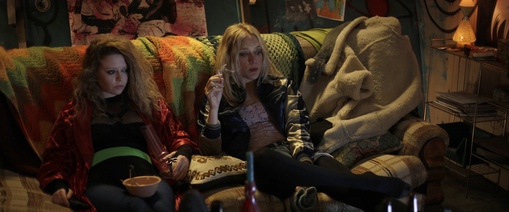 Danny Perez's Antibirth introduces a world full of depravity through the lens of a small, impoverished town in Michigan full of disenfranchised youth and drug-addled veterans, in what feels like a desolate place at the edge of the world. Lou and her friend, Sadie, live their lives one pot hit at a time, living a debaucherous lifestyle full of drugs, sex and bad decisions. One morning, Lou wakes up after a wild night of partying to symptoms of pregnancy, feeling uneasy and struggling to stay away from the toilet bowl rim. These symptoms are coupled with the fact that Lea has begun to have bizarre, reoccurring visions making her newfound illness as mysterious as it is painful. Danny Perez's Antibirth is an absurdist horror treat, a film that is perhaps best described as body horror meets drug film, using the stigma of unwanted pregnancy to fuel this subversive, offbeat tale. Antibirth is a film that shows little interest in coherence early on, throwing the viewer into this sleazy, debaucherous world, one in where strange happenings are admist but the viewer is left just as much in the dark as the inebriated protagonist. Antibirth goes out of its way to be bizarre, ambiguous, and confrontational, showing a certain glee in its subversive brand of horror that bring a lot of avant garde elements to the table. The ramshackle nature of this film makes it hard to decipher the supernatural from the hallucinatory, with Lou's dazed psyche and overall state of confusion making the whole film a strangely lovable experience. While it's far from a deal breaker, I do wish the film would have been more excessive with its gore and violence, matching the same gleeful amount of sleaze and depravity the film thrives on. A singular horror film that blends body horror with drug comedy, Antibirth is a bizarre, hallucinatory horror film that should be enjoyed by the more adventurous filmgoer.  Seong-hun Kim's Tunnel is a tale of perseverance, survival, and hope, telling the story of Jung-su, an ordinary man, who on his way home for his daughter's birthday unexpectedly finds himself in the fight of his life. Blending tropes of survival horror, disaster films, and introspective drama, Tunnel is an engaging experience about a man who finds himself trapped under thousands of pounds of rock, dirt, and concrete after a poorly constructed tunnel collapses with him inside. Tunnel is a well made film, with Seong-hun Kim exhibiting the type of claustrophobic environment our main protagonist finds himself in, with the cinematography and sound design playing an important role in establishing the true horror of being in this type of situation. A film with a surprising amount of scope, Tunnel begins as what appears to be a tight, straightforward piece of survival horror only to unfold into an expansive story touching on shortcomings of the government, the media's unquestionable thirst for a story, human error, and the importance of humanities' empathy towards one and other. Tunnel portrays both the media and government in less than positive lights, exhibiting how the media's desires are always rooted in the best possible headline while simultaneously showcasing the slog of government, a governing body that must always examine every situation void of the importance of the individual. Both the media and the government's interest in Jung-su are rooted in some form of selfishness, with the true empathy shown in the Tunnel being the individual rescue workers who work day and night attempting to do the impossible for the sake of human life. Though one could certainly argue that the film's length evokes the feeling of hopelessness and misery one would associate from being stuck underground for 35 days, Tunnel does overstay its welcome towards the end, with the film's narrative unable to completely support its 2+ hour running time. Tunnel is a serious story of survival, but Seong-hun Kim peppers his film with a lot of humor throughout, a film that takes advantage of the uncomfortable nature of such a struggle of survival, bordering on absurd humor to criticize the intentions of the media and government trying to save Seong-hun Kim. Seong-hun Kim's Tunnel is a thrilling experience that may be a tad overlong, a film that never pretends situations like this are anything but difficult, showcasing both the positive and negative aspects of human nature and society.  Clint Eastwood's latest film, Sully, is the story of Chesley Sullenberger, a US Airways pilot who became a national hero after performing an emergency landing on the Hudson River, saving the lives of all 155 crew and passengers. Clint Eastwood's film approaches the "Miracle on the Hudson" from the personal perspective of Chesley Sullenberer, telling a story of a man who was heralded by the public, but maligned internally by an unfolding investigation into the incident which threatened his entire career and reputation as a pilot. Approaching this film from a near biopic point of view, Clint Eastwood's Sully delivers an in depth portrait of an ordinary man thrust into the spotlight, documenting the weight which society as a whole can place on the individual when they are elevated above mere citizen and into herorism. From the media and public heralding Sully as a hero, to suffocating mechanization of review process that threatens his very livelihood, Sully is a character drowning under the pressures of the world around, with the two conflicting perspectives of his actions, tugging and pulling for attention in his headspace. Structurally, Sully is told through a narrative that oscillates between the near horrific events and the aftermath, depicting Sully's tortured psyche, one which routinely second guesses himself as he replays the events that day, over and over in his head. At its core, Sully is a film about the pressures of society, how ones perceived heroism can elevate the individual to uncomfortable heights. The general public and media worship Sully as a hero, praising him, wanting to spend more time with him, which leads to Sully's entire life being intruded upon, with the pressures of the internal investigation and the demands of the outside world weighing down a man who simply believes he was doing his job that he has built his life around. Clint Eastwood's Sully has its flaws, featuring some side characters that are damn near detrimental to the film's overall deconstruction of the psyche of its main protagonist. These side characters aren't cartoons, they simply feel very uninteresting and one-dimensional when compared to Sully, characters who must be documented for the sake of creating the stakes but who unfortunately feel like more of a distraction at times from Sully's more engaging, personal journey. Eastwood latest film can also feel heavy handed at times, from its message about heroism, to media ssensationalism, and governmental bureaucracy, but what keeps this film as steady as a rock is Tom Hank's tortured performance as Chesley Sullenberger, a man who is feeling tremendous pressure from the world.  Elizabeth Wood's White Girl is perhaps best described as a subversive love story; a fairy tale of depravity about the unlikely romance between Leah, a college girl from the midwest, and Blue, a low-end drug dealer whose primary corner is located across the street from Leah's Queens apartment in New Yew City. Lea is introduced as a carefree college student, someone who is experimenting with sex and drugs but overall comes from a relatively privileged background. Working at an upscale art boutique, White Girl early on reveals that Lea is quite innocent when it comes to adulthood and real consequences, seemingly never having to experience real adversity, naive about the colder aspects of the universe. Experimenting and living a carefree lifestyle, Leah falls hard for Blue, a character who comes from a much harsher environment but feels much more wise about the world. Sparks fly quickly but after a night of hard partying their budding romance takes a drastic turn, with Blue being arrested for a drug charge. With Leah now forced to fend for herself, White Girl chronicles the awakening of a character who is willing to do nearly anything to get Blue back in her arms. White Girl relies heavily on shock value, at times teetering on the edge of comedy due to its cartoonist descent into depravity. Nothing in White Girl is particularly subtle, with one of my biggest complaints being how didactic the film can be at times in delivering its vague commentary on racial inequality and privilege, almost as if they had to name the film "White Girl" to make it more obvious. I must admit that I did find the ending to be quite chilling, a sequence I would argue works in spite of the film's overall struggle when it comes to expressing its themes. This particular film also has a very harsh view of men, with Leah being a completely sexualized object, with every male character, from her boss to the lawyer she hires, desiring her like she is a piece of meat. The descent is compelling from a pure shock and awe factor, but many of these actions feel inorganic, simply inserted to provide obstacles but no depth to Lea's struggle. Elizabeth Wood's White Girl does consistently maintain a level of uncertainty throughout its running time, with the narrative mimicking the unhinged nature of its main protagonist. White Girls is better enjoyed as a twisted little romance, a film which delivers a rather stunning, cartoonish cautionary tale which unfortunately misses the mark when it comes to social commentary, for the most part. 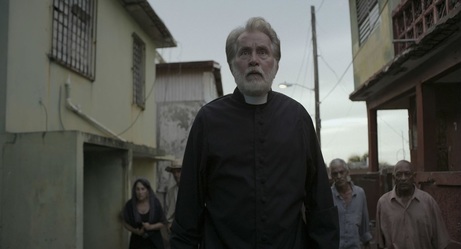 Julio Quintana's The Vessel is a meditative exploration of faith, hope, grief, and despair, being a film which exhibits humanities' struggle to deal with pain and emotional anguish, often looking towards the supernatural for guidance and acceptance when the natural world itself seems to offer little penitent for pain. Centered around a small-town located somewhere in South America (I think), Julio Ouintana takes place in the wake of a horrible tragedy, one in which has left forty-seven school children left lifeless after a tsunami unexpectedly wrecked havoc that day. The town is lifeless, stagnant, and full of misery, with many of the younger inhabitants of the town long gone, with only the older citizens of the town left in a perpetual state of misery. Leo, one of the few young inhabitants left, struggles with the loss of his own brother in the tsunami, unable to personally move on from the tragedy, due in part to his mother's deep-seeded misery. When Leo begins to experience strange happenings, after a near death experience, the town begins to run aflame with passions long forgotten, with many of the townsfolk beginning to see Leo as a source of hope, a vessel from god, and a light which could slowly lead to their own sense of happiness once again. Julio Quintana's The Vessel is a sociological study of grief and despair, being a film that deconstructs the toxic nature of such sadness, exposing a whole town of individuals whose own sadness, guilt, and grief reinforce their perpetual state of misery. Leo is a character who himself struggles with the burden of guilt, questioning why he is still alive when so many others weren't granted that right. His pain is reinforced by his own mother, who herself struggles due to the death of her other son, Leo's brother, living a life essentially as a mute with her only vocalization coming through an occasional sad song. The Vessel remains rather ambiguous as to whether Leo is in fact experiencing a spiritual presence, an intentional decision that touches on the fundamental nature of humanities' search for answers about our existence and the fundamental question of why do bad things happen. While some members of the village become empowered from Leo, showing for the first time some semblance of hope and rejuvenation, other members of the town view Leo as a demon of sorts, responsible for forsaking the town and these people, not helping them when they surely needed him the most. The Vessel is not an attack on faith or religion per se, more an examination of the existential nature of such beliefs, deconstructing both the empowerment which faith can have over the individual while simultaneously touching on the destructive nature it can create. The fine line between miracle and tragedy is a construct of perception in many cases, with The Vessel creating a meditative and thought provoking examination of both the dangers of blind faith, the importance of hope, and the destructive power of grief. Humanities shared connection, the need for empathy, and the importance of community are all intrinsic aspects of The Vessel, a film that really leaves the viewer in a sense of existential awe, with life and all its pain and joy being something we as individuals and a society should never take for granted. Considering Terrence Malick's involvement in The Vessel, the film's existential nature certainly isn't particularly surprising, but neither are the film's technical qualities, which featured the same type of rhythmic, lived-in, expressionistic cinematography that has been a major aspect of the late stages of Malick's career. Open spaces, decaying facades, and a grim color pallet of grays and black visual express the stagnant sorrow of this town, which only aids in creating the meditative aspects of the film's overall experience. Julio Quintana's The Vessel can be uneven at times with its message, but what stands out is the existential nature of this story, being a film that deconstructs man's penchant for hope, never shying away from looking at both the positives and negatives of faith. 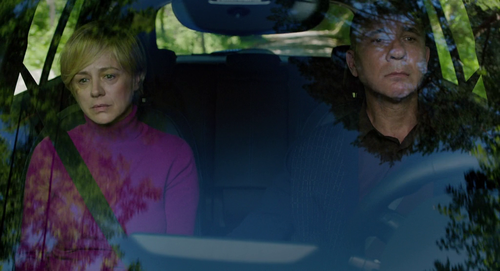 Pedro Almodovar's Julieta is an evocation of grief, regret, and the psychological effect which such burden can have on the human psyche, detailing the exploits of Julieta, a middle-aged woman who continues to be haunted by the absence of her daughter, Antía, who willfully vanished from Julieta's life over 12 years ago. Told from the perspective of this grief-stricken mother, Pedro Almodovar's Julieta is an engaging and revelatory study of woman who is soul-searching, deconstructing her memories through reflection in an effort to pinpoint the exact moment in which things went so wrong. Julieta thoughts, memories, regrets, and second-guesses are all documented through a memoir she begins to write for her daughter, with the film using this narrative structure to explore the psychological effect which regret has on the human psyche, connecting the pieces in a way that perfectly captures the great beauty and struggle that is the human experience. Almodovar's film is transfixing thanks to its skillfull direction and wonderful lead performance, with the film baring the soul of its main protagonist, exhibiting how interconnected life truly is, with every tough decision, every action made, having outcomes and consequences that effect our lives long after the initial impact is experienced. While the film does lack nuance from a narrative perspective when it comes to the details of Julieta's broken relationship with her daughter, Antia, the film's deconstruction of guilt is quite profound, exhibiting the inherent self-centered state of the human psyche. Told completely from the perspective of Julieta, Almodovar's film showcases how grief is inherently selfish in nature, detailing how Julieta as a character views nearly every outcome as a direct response to her own inherent flaws. From the tragic suicide of a stranger on a train, to the the death of Antia's father, Julieta perceives all of her trials and tribulations as constructs of her own failings as a mother, wife, and person, with her grief creating a dark-seeded burden that weighs this character down. The world is centered around her in this world of pain-stricken grief and regret, with Julieta perceiving her own intrinsic shortfalls as a living, breathing human-being as the primary reason for all of life's sorrow. This is perhaps best reflected in her relationship with her daughter, after the death of Xoan, with the film detailing how Julieta's expected state of depression and sorrow inadvertently affected her relationship with her Antia, becoming a passive character in her young daughter's life, who herself was in the middle of growing up, moving on, and could have used her mother for more emotional support. Nothing is cut and dry in Almodovar's Julieta, and it becomes apparent as the film progresses that Julieta's trials and tribulations are due to a variety of factors, some of which are out of her control, as Almodovar crafts a film that feels bigger than life itself, deconstructing how our emotions, such as grief and sorrow, can create a limited perspective of the world, and distract from solutions and personal connection itself. Julieta's perspective and pain is front and center, the heart and soul of Almodovar's film, yet the film triumphs in the end for its ability to touch on universal truths of humanity, documenting the interconnected nature of life itself. Throughout Almodovar's film there are parallels drawn between Julieta's personal struggles, those of her parents, and even those of her own daughter, as the film uses three generations of family to truly exhibit the human experience and the emotions which that entails, detailing how no one can escape the pain and joy associated with life. Julieta is a character stuck in a state of perpetual grief, fixated on her failing as a mother, and yet it's grief and sorrow that ends up reconnecting Julieta with her daughter in the end, as Almodovar's film exhibits how our shared connections of pain, sorrow, and joy is what truly makes life itself worth living. Featuring an engaging narrative full of personal revelation, Pedro Almodovar's Julieta is a poweful study of grief, detailing not only the psychological effect of sorrow and the burden it can create, but also the important rule it plays in memory and life itself.  Ronald Neame's The Horse's Mouth is the story of Sulley Jimson, a difficult, conniving, uncouth artist whose artistic endeavors have brought him limited admiration, plenty of rejection, and a genuinely tough way of life. Extremely infatuated by the seemingly endless pursuit of the perfect wall for his next piece, Sully lives an existence that often leads him alienated and alone, with his artistic pursuit being a very personal experience, one which by proxy has led him to owe money to nearly everyone he has ever come in contact with. Featuring a memorable lead performance by Alec Guinness, Ronald Neame's The Hourse's Mouth is a funny, honest portrait of the artistic pursuit, a film which manages to be comical yet brutally honest about the struggles of an artist whose work, by very definition, comes from a very personal place. The Horse's Mouth juxtaposes societies romanticization of the artist with the harsh realities of the world in which they tend to inhabit, revealing how being an artist is a tough, brave, and personal by nature. The hypocrisy of society when it comes to appreciating art but not the time and pain that tends to go into it is one of the attributes of Horse's Mouth that truly stands out, due primarily to Neame's honest story and Guinness' memorable performance. Given the fact that personal expression is intrinsic to art, financial success tends to be elusive for many artists, with Sully being a character who has become conniving and uncouth over the years due in part to this harsh reality, one that has left him beaten down by the world but where solace is found in the brush strokes of his work. The Horse's Mouth doesn't overly-romanticize the life of an artist in the slightest, detailing the internal struggle that is constantly a part of personal expression, one in which Sully himself is constantly at odds with himself about how to articulate what is inside his head. The Horse's Mouth's tone is impressive in its balance, being a film more than capable of detailing the complex emotions centered around the dire importance of art and personal expression while simultaneously laughing at Sully's over-the-top, difficult demeanor, with Neame's film understanding the importance of using laughter to talk about sadness and pain. 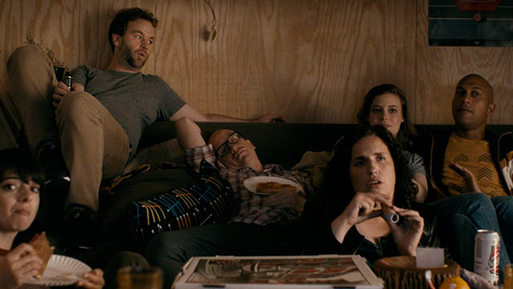 Mike Birbiglia's directorial debut, Sleepwalk With Me was a film which surprised me due to its utter honesty, being what felt like a deeply personal portrait of a man who was using the cinematic artform to express himself and tell his story. While Don't Think Twice doesn't quite achieve the same type of personal expression, due to the ensemble cast, Mike Birbiglia wisely goes back to the well of his personal experiences, writing and directing a film which immerses you in the world of a improv comedy, telling a story of struggling comedians who dream of success and acclaim thru being on the television show "Weekend Live"*hint hint. Starring a good cast of comedic actors who hold their own in the more dramatic moments, Don't Think Twice delivers an honest portrait of the confliction that exists between personal dreams/goals when they are communally shared, with these characters being at the age where they realize not everyone is going to achieve everything they dreamed about. Sleepwalk With Me beautifully expressed the importance of laughter when it comes to tragedy and sadness, and Don't Think Twice is no exception to that, feeling more like a drama, with the character's hopes and dreams being rooted in their love for comedy, with them exhibiting it on stage yet also as a cooping mechanism off of it. When one of the members of the improv group gets his big break, the group slowly becomes unhinged at the rails momentarily, with the film beautiful documenting the uncomfortable, cannibalistic nature that can arise when common dreams are shared and opportunities are finite. Any thematic gestures towards economic policy either aren't intentional, or are simply empty (i can't tell), but the film's personal study of friendship, scarcity, and the creative's pursuit is engaging from start to finish. This is a film that pulls no punches when it comes to being honest about the pursuit of creative endeavors, revealing how feelings of inadequecy, pain, failure, and heartbreak can bring out the ugliness of anyone's inherent selfishness. Don't Think Twice exhibits how underlying judgments come to the surface when frustrations emerge,,never judging these characters yet being honest about the emotional investment and venom that can be spewed when feelings of inadequacy take hold. The film achieves this so well due to its characters being genuine and personal, expressing the empowerment which creativity can and does bestow onto the individual. Smart, funny, and honest, Mike Birbiglia's Don't Think Twice is a worthy endeavor due to its ability to touch on universal concepts associated with feelings of inadequacy and the need for personal vindication.  Derek Ciafrance's The Light Between Oceans is a stirring cocktail of human emotion, a film which manages to capture how our emotions are the defining aspect of what makes us human, while also showcasing the inherent flaws which exist in this essential aspect of humanity. While I haven't seen a love story this intoxicating in quite some time, what really struck me about The LIght Between Oceans is how remarkable of an example the film is when it comes to the importance of characterization. The Light Between Oceans takes place off the coast of Western Australia, following Tom Sherbourne, a World War I veteran who has just accepted a job as a lighthouse keeper. A profession of solitude which places a man in complete isolation for multiple months at a time, a lighthouse keeper isn't exactly a desirable job, but for Tom he welcomes the solitude after witnessing so much death and destruction. When Tom meets Isabel, Tom's perspective begins to slowly change, as this young woman brings hope and love to Tom's life, concepts in which he long forgotten, reinvigorating him, giving him a sense of purpose anew. Their love is kinetic, intoxicating, and genuinely felt, as The Light Between Oceans contrasts Isabel's innocence, passion, and exuberance for life with Tom's stoic nature, as Isabel's character early on serves primarily a window into the inner emotions of this man who has so long suppressed his emotions, nearly numb from the amount of pain and death he has experienced. Some will likely say that the love and connection between Tom and Isabel is rushed but I'd argue that has more to do with the scope of this sweeping story, as none of the emotions ever feel underdeveloped, only genuine, due primarily to the film's strong characterizations and stunning performances. In a sense, The Light Between Oceans is a remarkable example of how intricately designed characterizations can triumph over the shortcomings of a screenplay, as the film does suffer from some didactic moments and an overall storyline that could have easily felt overwrought and emotionally manipulative. I'm intentionally remaining illusive when it comes to actual plot details, but I'd definitely argue that the narrative itself shouldn't feel organic due to its grandoise scale that would make most cheesy romance novels blush, yet the truths which the film underlines remain geniune, touching, and essential to defining love and life. Through two lead performances and skilled direction by Derek Ciafrance, The Light Between Oceans' flaws did very little to sway me from my attachment and dedication to these characters, as I found this film to be one of the more emotionally exhausting experiences I've seen in awhile. The Light Between Oceans defines love in a more tangible way than most, documenting the dedication, sacrifice, and tenderness associated with love in a very honest and powerful way, These two characters slowly merge together throughout the film, with the trials and tribulations, no matter how extreme, only strengthening their resolve for one and other in the end. Perhaps why the film works so well for me is due to the fact that it wisely never pretends that the events which unfold are easy or have easy solutions, embracing the concept that love and emotion are almost always messy, while exhibiting why forgiveness is always of paramount importance in humanity. Intentionally or not, The Light Between The Oceans reveals the inherent selfishness of humanity, exposing how emotions are often rooted in some primal form of personal preservation. It's a film which essentially showcases how acceptance and acknowledgement of emotions not being rooted in logic can be vital when it comes to forgiveness, with all three principle characters in this story being individuals the audience has a sense of empathy for. While the characterization and astonishing performance by Michael Fassbender, Alicia Vikander, and Rachel Weisz all play a major role, it's Derek Ciafrance's direction that elevates this film tremendously, showcasing a visual eye and an acumen for telling a story through visuals. The opening scene of the film is a great example of this, in which Tom takes part in the job interview for the the lighthouse caretaker position which he will soon get. While Tom interacts with the interviewee, the camera never lingers from Tom's stoic, cold-eyed stare, never telling the viewer about his past experiences but showing the sadness between the eyes of a man who appears to be broken. While Ciafrance's abundance of wide compositions in Light Between The Oceans may border on overuse, they serve a purpose, as the filmmaker juxtaposes them with intimate close-ups and tight frames, a visual tool that visual expresses Tom's, and eventually Isabel's internal struggle, with that of their shared love and tenderness which they have for each other. Is the film optimistic about love, of course it is, but the joy of life is beautifully contrasted with the colness of the world through Cianfance's visual storytelling. While the dark, vast, formless nature of the ocean is a symbolic representation of the sadness and coldness that does exist in the world, the sun's brightness and warmth represents the importance of love and companionship, with Derek Ciafrance crafting a film that has a visual rhythm all to itself, perfectly complimenting the large-in-scope storyline. The first act of Derek Ciafrance's Light Between Oceans is damn near flawless, and while the back-half does at times teeter close to the edge of over-sentimentality, strong characterizations, powerful performances, and detailed direction make it a film that left me emotionally drained and desperate to experience the version of love it expresses. |
AuthorLove of all things cinema brought me here. Archives
June 2023
|

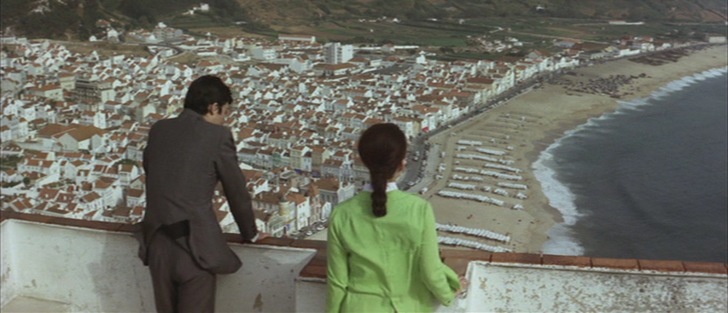
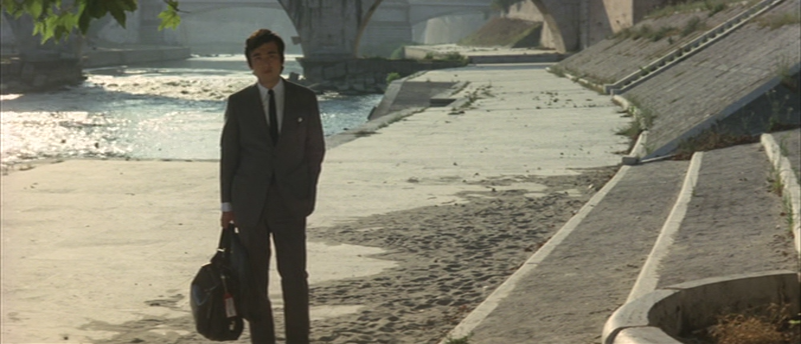





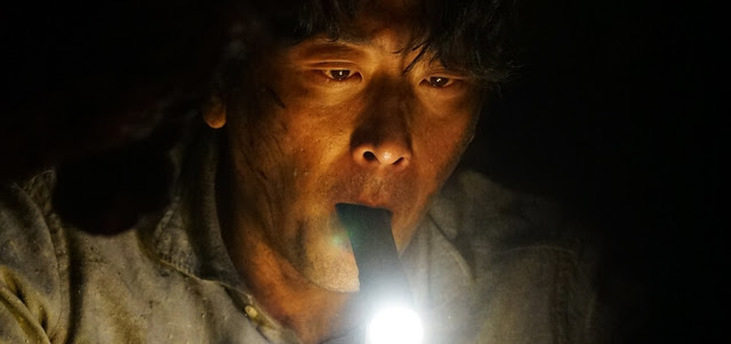






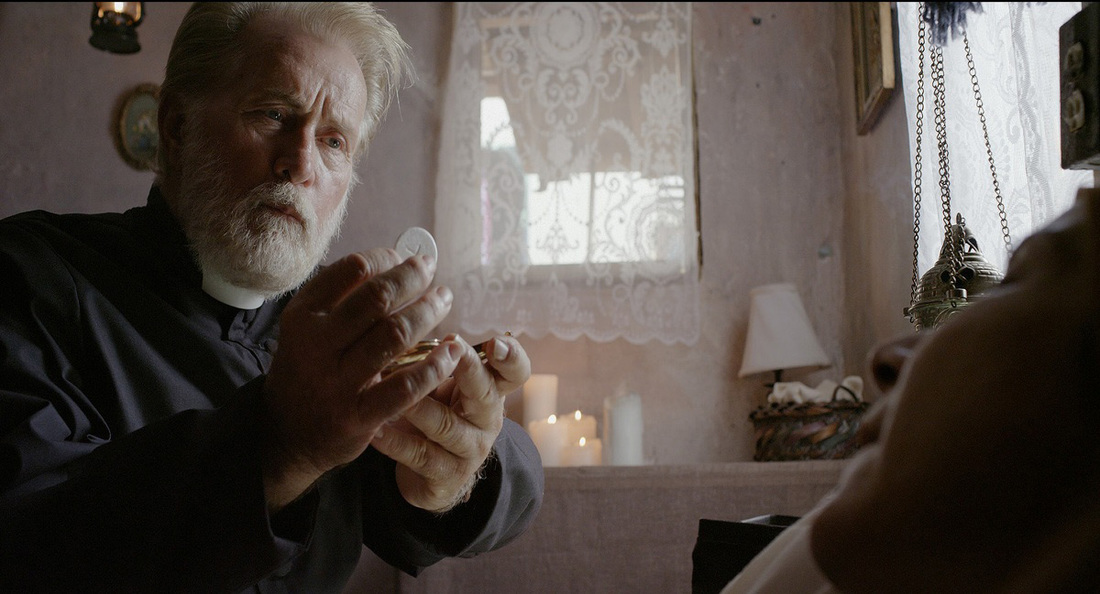

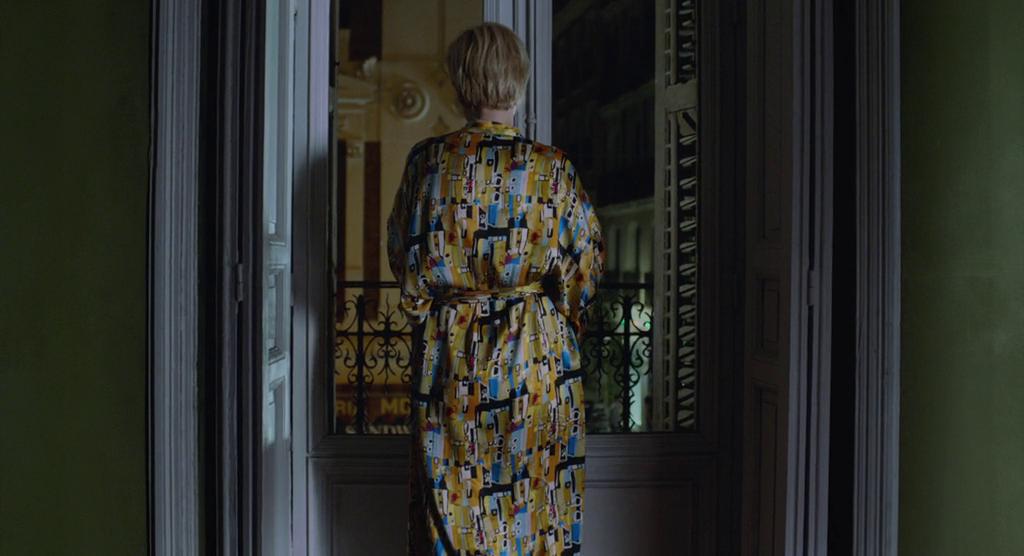
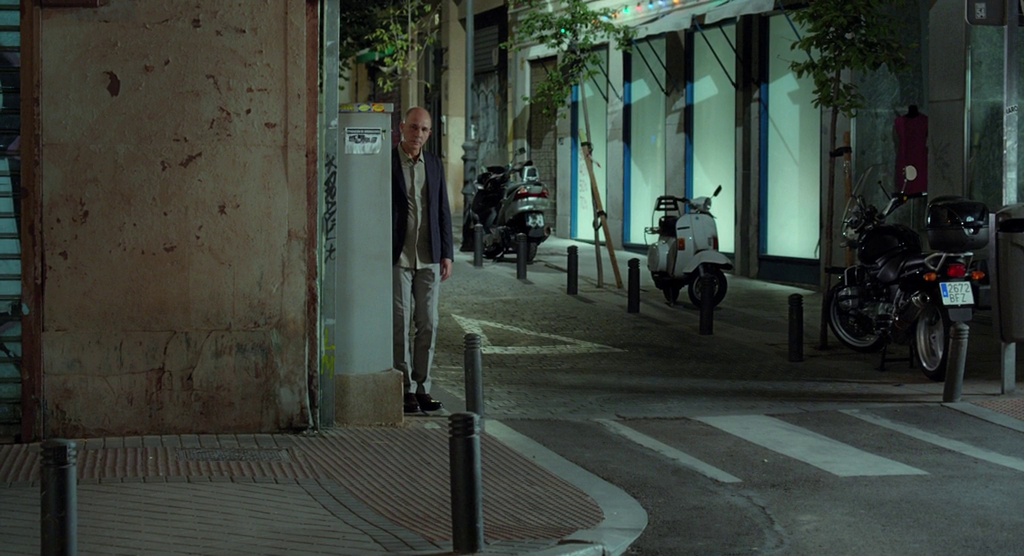
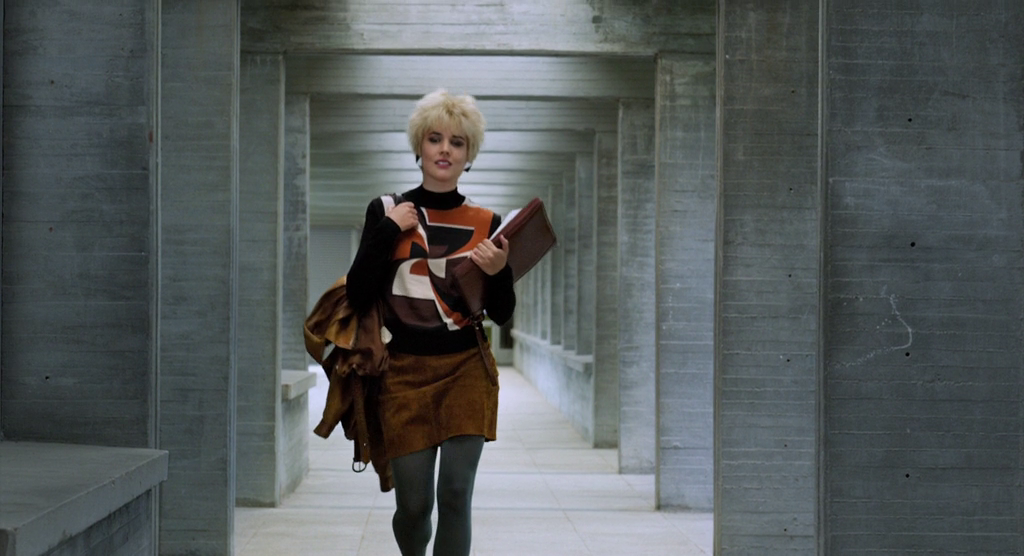
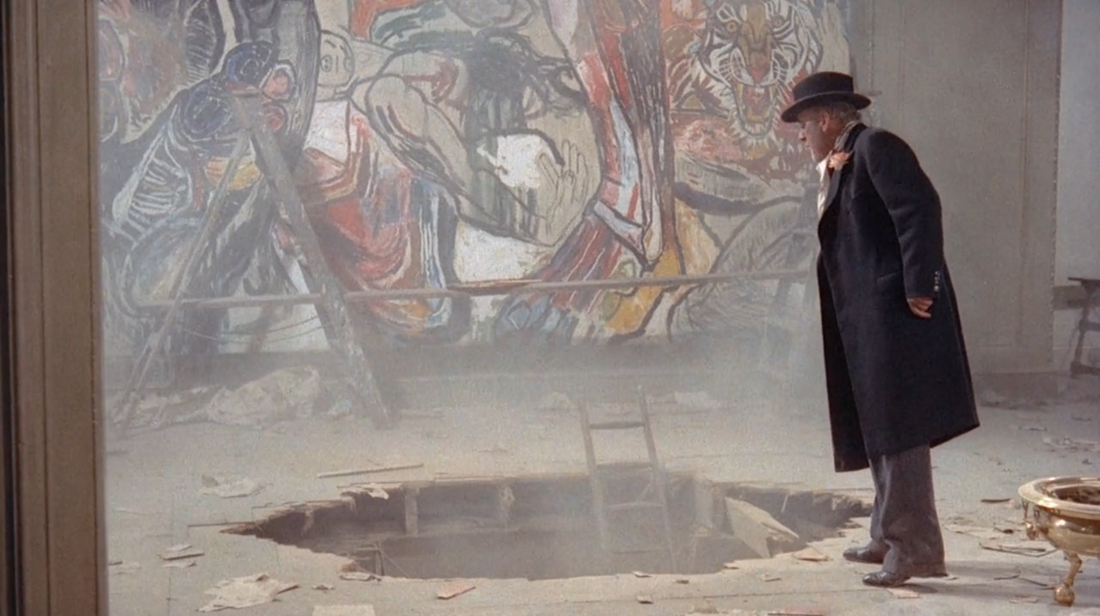
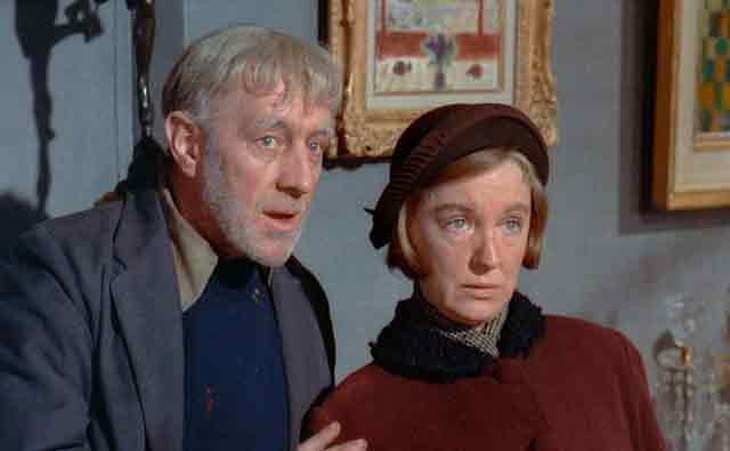
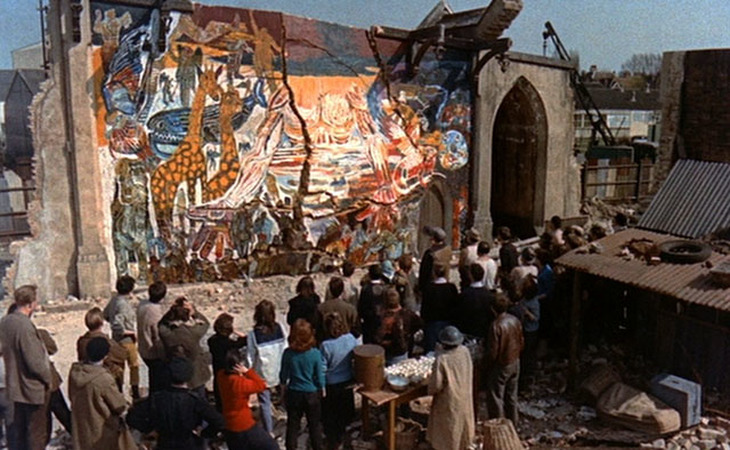




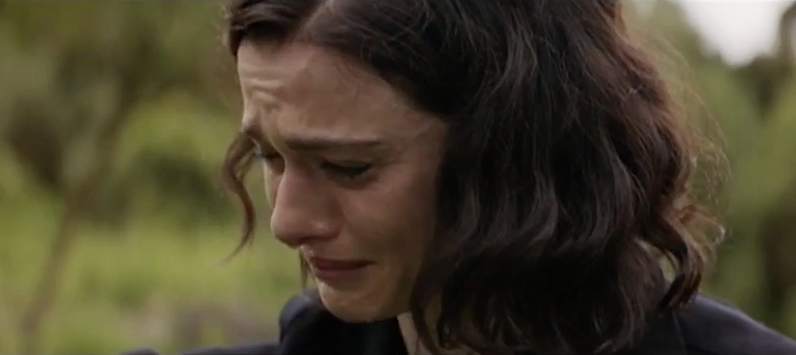
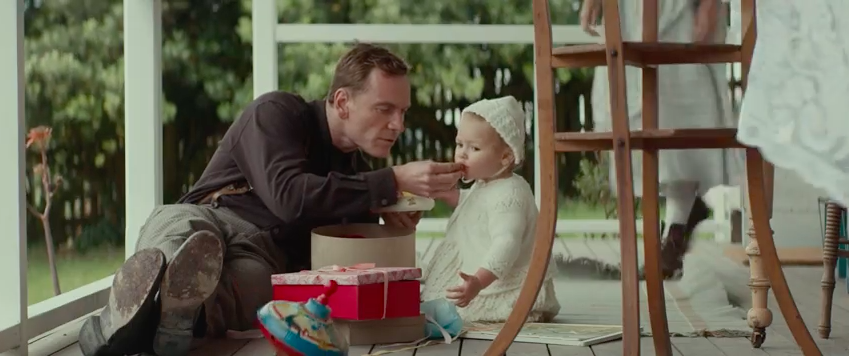
 RSS Feed
RSS Feed
